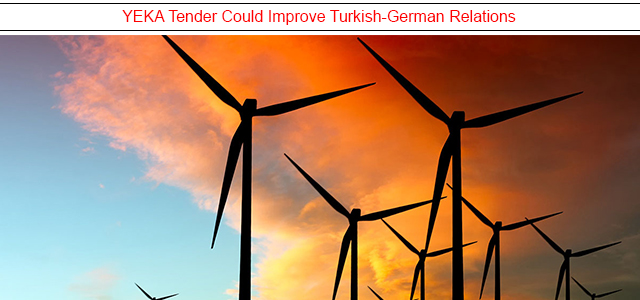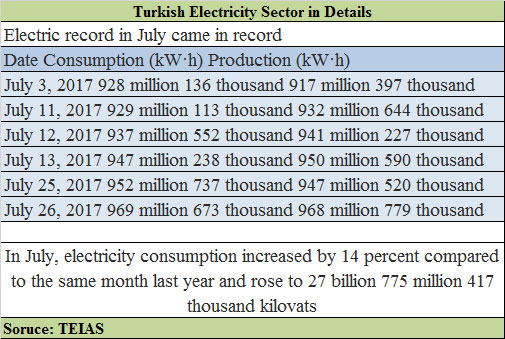
The German energy company, Siemens, won the tender in Turkey's Renewable Energy Resources Zone Project (YEKA) and this will contribute positively to the relationship between Turkey and Germany, according to Berat Albayrak, Turkey's Energy and Natural Resources Minister on Thursday.
The Siemens - Turkerler - Kalyon consortium won the first 1,000-megawatt wind tender offered by Turkey's YEKA on Thursday. The consortium offered the lowest price at $3.48 per kilowatt-hour of electricity production.
Speaking after the YEKA tender on Thursday, Albayrak said that the result of the tender sends an important message to the world considering the 200 years of long relationship between the two countries.
Turkey broke record in cost of electricity per hour from wind power generation in the tender which was $10.3 before, Albayrak highlighted.
"There is a need to increase the share of local and renewable resources in order to decrease the country's current account deficit," Albayrak said, adding that "Especially, in the places where supply is lower, we will continue the investments in local resources and YEKA in the future."
Siemens-Turkerler-Kalyon win YEKA's 1st wind Project
The consortium offered the lowest price at $3.48 per kilowatt-hour of electricity production. The winning consortium will construct a wind turbine factory in Turkey in the next 21 months, following the signing of the agreement. Up to 450 wind turbines, each with a minimum capacity of 2.3 megawatts will be manufactured at the factory.
The YEKA wind projects aim to generate approximately 3,000 gigawatt-hours of electricity per year, powering 1.1 million homes annually.
A consortium of Turkish and international companies submitted a total of eight final bid offers for Turkey's 1,000 megawatts of wind power for theYEKA project last Thursday, July 27.
Wind power in YEKA will enable the country to install high wind capacity at a cost of around $1.2 billion and will avoid 1.5 million tonnes of carbon emissions each year.
The world's top wind turbine producers submitted their bids for the 1,000-megawatt wind project including eight consortiums including;
- Vestas (Denmark) - Enerjisa (Turkey)
- General Electric (U.S.) - Fina Enerji (Turkey)
- Goldwind (China) - Akfen Holding (Turkey) - Beycelik (Turkey)
- Siemens (Germany) - Turkerler (Turkey) - Kalyon (Turkey)
- Enercon (Germany) - Polat Energy (Turkey) - Limak Energy (Turkey)
- Nordex (Germany) - İklim Elektrik Yatirim (Turkey) - MKS Marmara (Turkey) - Zorlu Energy (Turkey)
- MingYang (China) - Ilk Construction (Turkey)
- Senvion Wind Energy Solutions (Germany) - IC Ictas Energy (Turkey)




